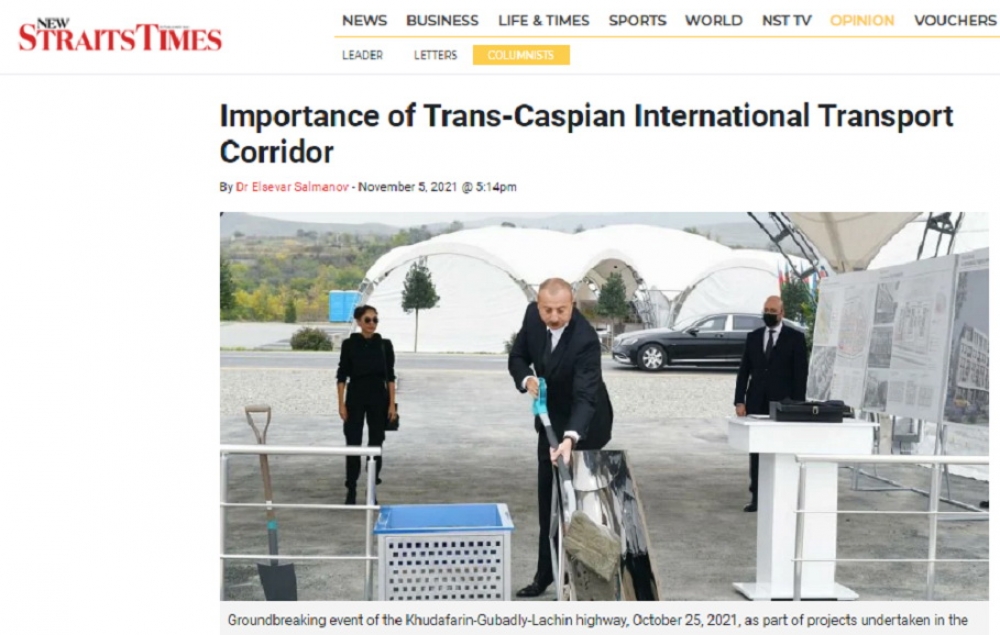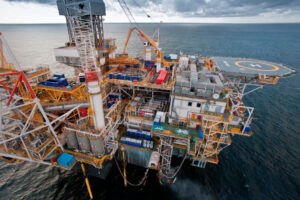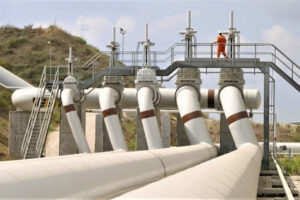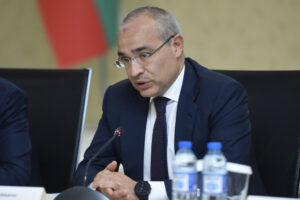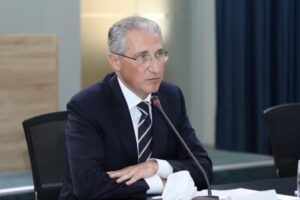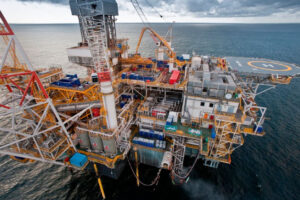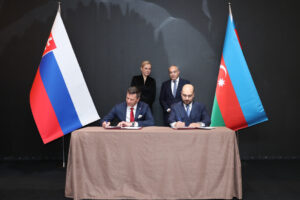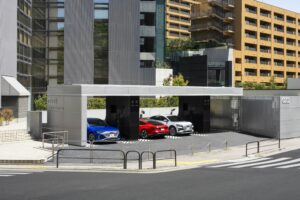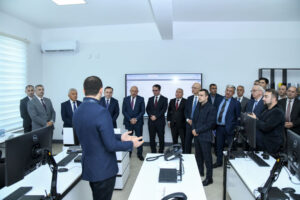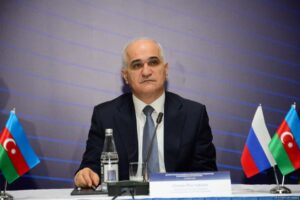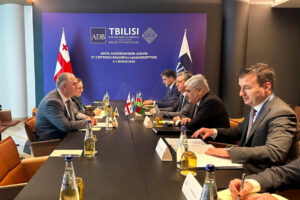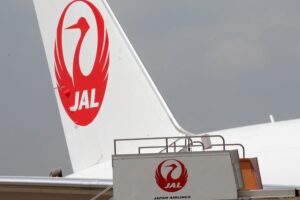Tokyo, 11 November, /AJMEDIA/
As it is known, “globalization” is a multidimensional international process and it can be said with a superficial approach without making a deep examination of the concept, that this concept includes phenomena such as “integrity” and “homogeneity”. Of course, the concepts of “integrity” and “homogeneity” first bring the concept of “obstacles” to the fore that are in front of the globalization process in the global and regional sense, and even in the internal procedures and dynamics of countries. In other words, anything that prevents, disrupts and slows down the global integration process can be described as an “obstacle” in this context. Therefore, the concepts of “globalization” and “barrier” are frequently encountered in the teaching of international relations and in the practice of diplomacy, and some approaches attribute “good” – “bad” correlation or interactional rhetoric to these two concepts.
Let’s make it clear with concrete examples; warfare between countries, serious violations of international law, political tensions and conflict risks at the regional and global level are some of the most important obstacles to global integration. Armenian occupation of the Azerbaijani territories and the continuation of this situation for almost 30 years can also be mentioned in this context. Thus, by ending the occupation of Armenia by the Iron Fist Operation, Azerbaijan has not only recovered the greatly damaged dignity of the UN, OSCE and international law in general, at the same time Azerbaijan has removed one of the biggest obstacles to the development of international transport, communication, transportation and trade, first by military and then by political means.
The Government of the Republic of Azerbaijan, which has shown great political will within the scope of integration into the global economy and determined the main lines of its foreign policy in this direction, has taken a very active role for years in the development and diversification of energy, transportation, communication lines at the global level and succeeded in realizing important global projects such as Baku-Tbilisi-Ceyhan, Baku-Tbilisi-Kars railway, Baku-Tbilisi-Erzurum natural gas pipeline, Southern Gas Corridor, TANAP, TAP etc. Azerbaijan has been able to achieve all of these despite the Armenian occupation of considerable part of its territories for almost 30 years, a series of security problems and the failure of international institutions regarding these problems to do their job, the insensitivity and double standards of the great powers.
As a result of the defeat of the occupying Armenian army by the Armed Forces of the Republic of Azerbaijan`s Iron Fist Operation, and the expulsion of them from the territory of Azerbaijan, on November 10, 2020, the President of the Azerbaijan Republic Ilham Aliyev, the President of the Russian Federation Vladimir Putin and the Prime Minister of Armenia Nikol Pashinyan signed a trilateral declaration of Armenia’s acceptance of defeat. On January 11, 2021, all three leaders signed another statement in Moscow in support of the November 10 declaration. The Republic of Azerbaijan, as a victorious state, has fulfilled all its obligations stipulated by the aforementioned tripartite declarations. It is also necessary and expected that the Armenian side will fulfil its commitments within the scope of the trilateral declarations and in this direction, Armenia should not hinder the projects and efforts for the revitalization of the regional transportation and communication networks. This is what the basic logic demands for sustainable regional peace and cooperation. As a matter of fact, article 9 of the trilateral declaration foresees the reopening of the Zangezur-Nakhchivan corridor. The Republic of Azerbaijan is determined to implement the provisions of the tripartite declarations and will achieve this. On October 26, by Turkish President Erdogan and Azerbaijani President Aliyev the opening of the Fuzuli International Airport in the liberated territories which has been completed in 8 months and groundbreaking of the road leading to the Zangezur corridor can be described as decisive, fast and tangible steps.
On the other hand, the reopening of this corridor is also very beneficial for Armenia as well. This will put an end to the blockade situation that Armenia has fallen into as a result of its policies to isolate itself from the region in last 3 decades.
Why is it important for our subject that the Karabakh Problem is resolved by military-political means and is now a thing of the past? Because another obstacle to the enormous development of transportation networks on the East-West, North-South, South-West routes has been removed, and this situation is not only beneficial for the interests of Azerbaijan, there are great economic interests of all countries concerned, regionally and even globally.
It can be said that these routes are closely related and even complementary to each other, and they have the potential to have long-term effects on international trade. The necessity of diversifying routes or creating alternatives in global trade, especially in transportation between Asia and Europe, was once again understood with the Suez Canal Crisis, which was overtaken and caused billions of dollars of damage. Thus, global trade is too important to be put at risk by being tied to a small number of routes. On the other hand, since the cost and time are of great importance in transportation, the possibilities of the Middle Corridor (Trans-Caspian International Transport Corridor), which are improving day by day, should be taken into account. So that the Trans-Caspian International Transport Corridor promises at least two times less in terms of time period and cost.
“Strategic Roadmap for the Development of Logistics and Trade in the Republic of Azerbaijan” was approved by President Ilham Aliyev in 2016. Azerbaijan became a party in 2005 to the intergovernmental agreement on the creation of the North-South transport route signed between Russia, Iran and India in 2000. A total of 13 states including Turkey, Bulgaria, Ukraine, Belarus, Kazakhstan, Kyrgyzstan, Tajikistan, Sultanate of Oman and Armenia have ratified the treaty regarding the North-South transport route. The aim of the development of the North-South transport route is to reduce the transportation period of goods from India to Russia and Europe from 6 weeks to 3 weeks. In this context, Azerbaijan has made series of negotiations and signed relevant agreements with the Russian and Iranian sides in the past years, and it can be said that Azerbaijan has completed all the necessary infrastructure projects.
The South-West transportation corridor, on the other hand, is a project introduced in 2016 with the initiatives of Azerbaijan, and it appears as the India/Persian Gulf-Iran-Azerbaijan-Turkey/Georgia-Turkey/Ukraine/Romania/Bulgaria-Europe route. In this context, the relevant Protocol was signed between Azerbaijan, Georgia, Iran and Ukraine in 2016. The advantage of the South-West transport corridor over other alternatives, especially the Suez Canal route, is that the distance and time to be spent are three times less.
The Lazurite (Lapis Lazuli) corridor, which started to work in 2018, is an initiative that should be emphasized within the scope of strengthening regional transportation links and eliminating trade transit barriers. Namely, the project, based on the intergovernmental agreement signed in 2017 between Turkey, Georgia, Azerbaijan, Turkmenistan and Afghanistan within the framework of the Regional Economic Cooperation Conference on Afghanistan (RECCA), also reveals the increasing importance of the Trans-Caspian international transport corridor in the field of international transport. The issue of what steps the Afghanistan will take in future in the light of these facts is also very important.
The East-West route has a very important place in the Strategic Roadmap for the Development of Logistics and Trade in the Republic of Azerbaijan. In 2015, “Memorandum of Understanding on joint support of the establishment of the Silk Road Economic Belt between the Government of the Republic of Azerbaijan and the Government of the People’s Republic of China” was signed. On the other hand, Azerbaijan is both an initiator and an important part of the TRACECA project. As a matter of fact, the Permanent Secretariat of TRACECA is located in Baku.
Signing of the “Joint Cooperation Protocol” between the Ministers of Transport of the Turkic Council member countries is another important point regarding the cooperation carried out within the scope of the Middle Corridor. Another important development in this regard is the establishment of the Coordination Committee of Azerbaijan, Kazakhstan and Georgia on February 20, 2014 in order to develop the Trans-Caspian International Transport Route.
The fact that raises Azerbaijan to an advantageous country position in all relevant transportation routes, especially in the East-West transportation corridor, is that all infrastructure projects in the country have been completed and are in operation. We can list these infrastructure assets as follows: 7 International Airports (two more international airports will be built in the liberated regions), the largest trade fleet in the Caspian Sea, the Baku-Tbilisi-Kars railway, the largest modern shipyard on the Caspian Sea coast which started operating under the umbrella of SOCAR in 2013, Baku International Sea Trade Port which started its operations in May 2018 in the town of Alat on the shores of the Caspian Sea. It should be emphasized that Alat Free Economic Zone, Baku International Sea Trade Port and the largest modern shipyard of the Caspian sea are all located at the intersection of main highways and railways.
The transportation of goods via the Trans-Caspian International Transport Corridor and BTK which started its operations on October 30, 2017, is two times less than the time spent on maritime transport and means that China, Kazakhstan, Turkmenistan, Kyrgyzstan, Uzbekistan, Tajikistan and Afghanistan can reach the European and Western world.
If we summarize the subject, the situation of ending the Armenian occupation in considerable part of Azerbaijani lands has the quality to accelerate the extremely positive developments mentioned above, since the increase in cooperation opportunities creates an environment of sustainable peace and development, it is a phenomenon that every peace-loving state should support.
Dr. Elsevar Salmanov

